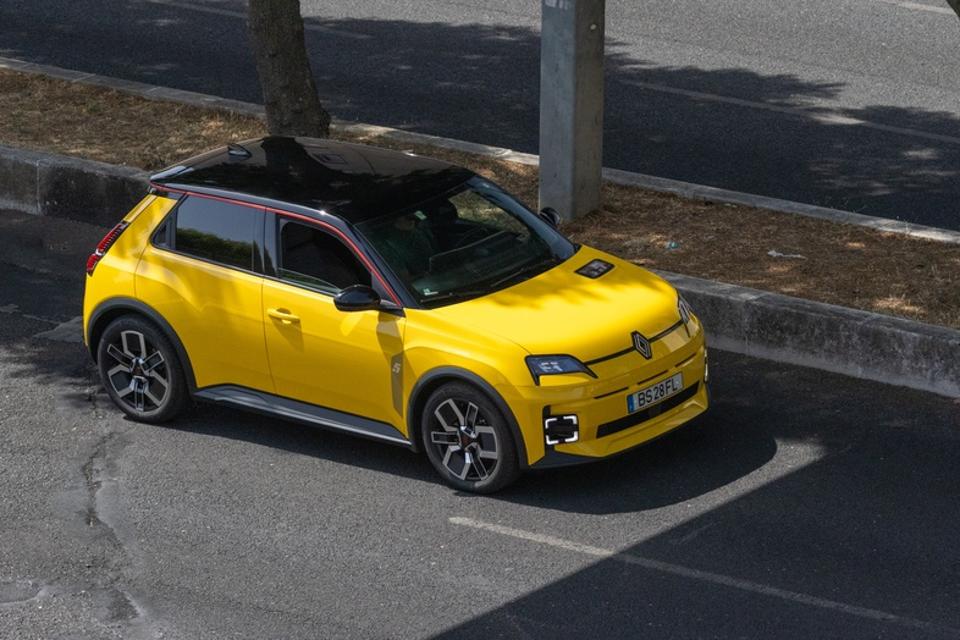Sales of Chinese electric vehicles in Europe continue to power ahead and the advance is expected to gain momentum. But new models planned by local manufacturers should help bring it under control and flatten out the trend before the end of the decade.
Schmidt Automotive Research said Western Europe market share for Chinese EVs will jump to 11.0% this year or 269,450 vehicles, up from 9.6% in 2024, and compared with only 3.8% in 2021. Chinese market share will peak at 13.0% in 2028 and slip back to 11.7% in 2030 or 756,000 vehicles.
Western Europe includes the 5 largest markets of Germany, France, Britain, Italy and Spain.
The overall share for Chinese manufacturers including plug-in hybrids and hybrids will jump from 3.4% in 2024 to 6.0% this year or 701,750 vehicles. Overall share will advance to 7.5% in 2026 and reach 9.9% by 2030 or 1,292,000 vehicles, according to Schmidt Automotive.
Meanwhile, the European Automobile Manufacturers Association (ACEA) announced Tuesday EV sales in all of Europe in the first 10 months of the year reached 1.5 million for a market share of 16.4%, up from 13.2% in 2024. The overall market was up 1.4% at 11 million.
China share more than trebled
China’s EV market share has more than trebled in Europe to around 7.0% in the first half of 2025 compared with about 2.0% in 2022, BMI, a Fitch Solutions company, said.
EV model launches planned over the next couple of years will provide some defense against intensifying Chinese competition. This will be helped by entrenched local loyalty to heritage European brands.
Major brands like Volkswagen, Mercedes, BMW, Renault and Stellantis are planning a big rollout of more advanced and competitively priced small EVs and PHEVs. Planned EV launches include Volkswagen’s ID.1, ID Polo, Renault’s 5 E-Tech, Stellantis’s Citroen e-C3, Peugeot E-208 and Fiat Panda EV.
The next phase for China will be its switch to producing in Europe, propelled by the European Union’s tariffs on imported EVs. This will also help to buttress its image among European buyers.
BYD has already announced plans for factories in Hungary, Turkey and maybe Spain. SAIC, owner of the biggest-selling MG brand, hasn’t announced any local production plans yet. Chery and its Omoda and Jaecoo brands has a plant in Spain.
10% by 2030 seems plausible
Michael Fisher, data scientist at the financial analysis platform TradingPedia, said Chinese EV sales might reach 10% by 2030.
“Growth rates are impressive, but they appear to be moderating, suggesting that a 10% EV share by the end of the decade is plausible, though it will depend on regulatory support, consumer adoption, and the competitive response of established European manufacturers,” Fisher said in an email exchange.
“BYD and SAIC are likely to lead Chinese EV penetration in Europe, with BYD particularly strong in mainstream segments and SAIC steadily expanding its footprint. European automakers, including Volkswagen, Stellantis, BMW, Mercedes-Benz, and Renault, continue to dominate overall car sales, but the rapid growth of Chinese brands represents a notable competitive challenge, particularly in smaller and more affordable segments,” Fisher said.
Could this push from China, in a market likely to be stagnant, cause any incumbents financial problems?
“At this stage, it is unlikely that Chinese expansion will directly trigger bankruptcies among established European automakers. However, weaker regional brands may face increasing pressure, if Chinese sales continue to accelerate. EV penetration remains highest in countries such as Norway, Iceland, and the Netherlands, while southern and eastern European markets, including Italy, Poland, and Greece, show lower adoption rates. This uneven adoption will influence both the pace and scope of Chinese EV market penetration across Europe,” said Fisher.
Great Wall Motor plans Europe factory
On Thursday, China’s Great Wall Motor said, according to Reuters, that it plans to make 300,000 vehicles in Europe by 2029. GWM is looking at sites in Spain and Hungary and other unspecified locations. GWM’s Ora 3 and Haval SUV brands are already selling in Europe. It plans to launch the Ora 5 compact SUV in Europe next year, Reuters reported.
Geely recently announced it will sell its own name brand in Europe with the target of opening 1,000 dealerships in five years. Geely also owns Volvo, Polestar, Zeekr and Lotus and the PHEV maker Lynk & Co.
Some Chinese interlopers might fail
Schmidt Automotive founder Matt Schmidt said in the report all these brands, especially those aimed at the higher end, are unlikely to remain for the long term and some consolidation is likely.
“The main entry to Europe for Chinese brands continues to be from a volume brand perspective, with manufacturers such as Renault, Ford, Stellantis, as well as Volkswagen’s core brands all exposed to the threat of Chinese offering a comparably priced model in the same segment but with a higher trim package, whilst remaining profitable thanks to their Chinese cost base, despite tariffs” Schmidt said in the report.
“The (U.S.) market is now effectively closed to the Chinese. Europe, therefore, remains key to China’s efforts to keep domestic utilization rates high in the short-term, while Europe’s open-door policy of offering no tariffs for locally manufactured products aimed at a green industrial drive to attract green re/near shoring, industrial investments and a knowledge transfer could see more Chinese manufacturers arrive,” Schmidt said in remarks published before GWM’s announcement.

